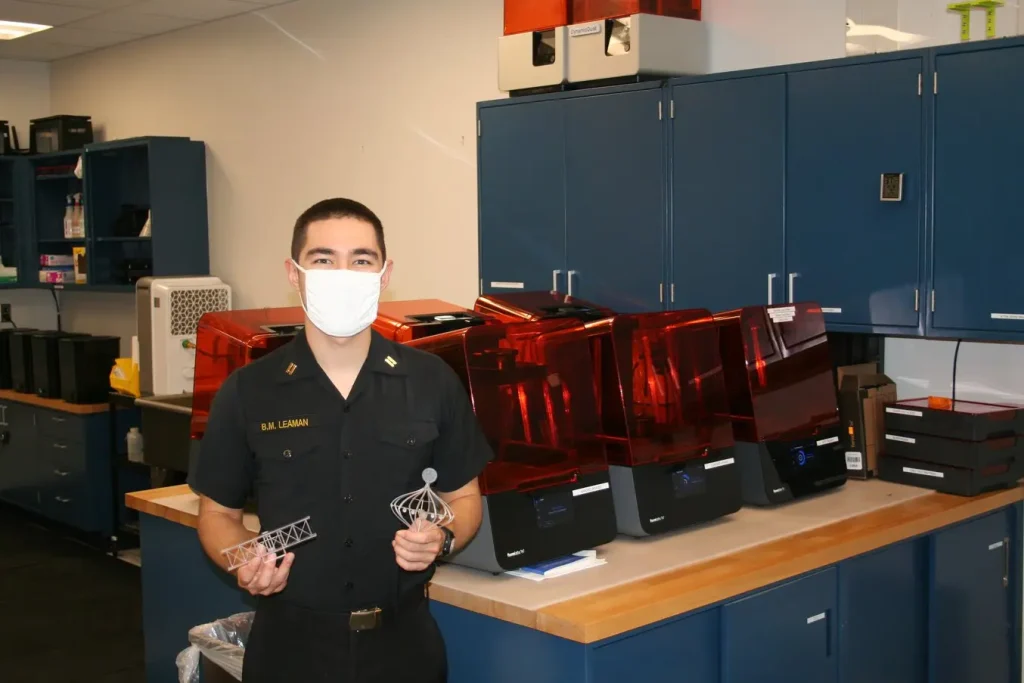By Stuart Taylor, Cisco
Internet Business Solutions Group (IBSG)
Internet Business Solutions Group (IBSG)
I have just returned from a very interesting and
jammed-packed week at Mobile
World Congress 2013 in Barcelona. More than 70,000 people were estimated to
have attended this year’s MWC, and its fabulous new conference facilities proved
a great place to celebrate the industry’s accomplishments and catch a glimpse
of its potential future. The mobile industry continues to grow while moving
from success to success. And though much has changed since I reported my observations
of MWC 2012, I would characterize the process as more evolutionary than
revolutionary.
jammed-packed week at Mobile
World Congress 2013 in Barcelona. More than 70,000 people were estimated to
have attended this year’s MWC, and its fabulous new conference facilities proved
a great place to celebrate the industry’s accomplishments and catch a glimpse
of its potential future. The mobile industry continues to grow while moving
from success to success. And though much has changed since I reported my observations
of MWC 2012, I would characterize the process as more evolutionary than
revolutionary.
The following are my personal observations and
extrapolations from the show, based on my conversations with operators,
customer meetings, analysts, and colleagues, as well as from simply walking the
show floor.
extrapolations from the show, based on my conversations with operators,
customer meetings, analysts, and colleagues, as well as from simply walking the
show floor.
1. LTE
Has Evolved—At previous shows everyone was talking about LTE (Long Term
Evolution) as the latest 4G wireless technology. This year you had to look
pretty hard to see those letters, and they didn’t seem to be on the tip of most
people’s tongues. Though many countries in the world still lack 4G coverage and
many others are just beginning to deploy LTE, the industry seems to have moved
on and is taking LTE as a given. This
leaves us in a technology trough, awaiting the next new, shiny network
technology.
Has Evolved—At previous shows everyone was talking about LTE (Long Term
Evolution) as the latest 4G wireless technology. This year you had to look
pretty hard to see those letters, and they didn’t seem to be on the tip of most
people’s tongues. Though many countries in the world still lack 4G coverage and
many others are just beginning to deploy LTE, the industry seems to have moved
on and is taking LTE as a given. This
leaves us in a technology trough, awaiting the next new, shiny network
technology.
2. SPs
Manning the Booths, Turning the Tables—At one time, service providers were
the kings of the show, being courted by vendors and other companies looking to
sell them their mobile products and services. The tables seemed to have turned
somewhat. I was surprised by the number of prominent service providers from
around the world who had their own extensive booths or were part of the GSMA’s
“Operator Village.” Now, it seems that
SPs are keen to show off and sell their latest applications, cloud services,
gaming and other innovative mobile offerings. These services are seen as new
revenue-generating opportunities that will counter similar OTT offerings.
Manning the Booths, Turning the Tables—At one time, service providers were
the kings of the show, being courted by vendors and other companies looking to
sell them their mobile products and services. The tables seemed to have turned
somewhat. I was surprised by the number of prominent service providers from
around the world who had their own extensive booths or were part of the GSMA’s
“Operator Village.” Now, it seems that
SPs are keen to show off and sell their latest applications, cloud services,
gaming and other innovative mobile offerings. These services are seen as new
revenue-generating opportunities that will counter similar OTT offerings.
3. Wi-Fi
2.0, From Legitimacy to Money Maker—Last year Wi-Fi moved from the back
corner to become a viable part of the mobile architecture, delivering in-building
coverage and offload relief from the exponential consumer demand for mobile
data. This was the year of Wi-Fi monetization— moving beyond cost savings to
find new sources of revenue from deploying Wi-Fi. Nearly every operator I spoke with asked the
same question, “How do I make money from Wi-Fi?” My recent blog
during MWC provides some of the answers.
2.0, From Legitimacy to Money Maker—Last year Wi-Fi moved from the back
corner to become a viable part of the mobile architecture, delivering in-building
coverage and offload relief from the exponential consumer demand for mobile
data. This was the year of Wi-Fi monetization— moving beyond cost savings to
find new sources of revenue from deploying Wi-Fi. Nearly every operator I spoke with asked the
same question, “How do I make money from Wi-Fi?” My recent blog
during MWC provides some of the answers.
4. Small
Cells in the Great Indoors—The shift of mobile users to more “nomadic” and
indoor usage—and the need to cope with growing demand and limited spectrum—has
MNOs scrambling to find ways to provide better in-building coverage and
capacity. Small cells, with much smaller
footprints and power output, provide much of the solution. All vendors are now
actively promoting licensed small cells as part of their network-access
portfolio. Often, these are integrated with Wi-Fi access points for a combined
licensed and unlicensed solution. Check out some of the insights from me and my
fellow Big Thinkers in
Small Cells.
Cells in the Great Indoors—The shift of mobile users to more “nomadic” and
indoor usage—and the need to cope with growing demand and limited spectrum—has
MNOs scrambling to find ways to provide better in-building coverage and
capacity. Small cells, with much smaller
footprints and power output, provide much of the solution. All vendors are now
actively promoting licensed small cells as part of their network-access
portfolio. Often, these are integrated with Wi-Fi access points for a combined
licensed and unlicensed solution. Check out some of the insights from me and my
fellow Big Thinkers in
Small Cells.
5. Devices
Are All About the Software—Now that all smartphones, tablets and newer
mobile devices (Phablet
anyone?) look remarkably alike, the real battle for differentiation is in the
software. Windows and Blackberry
(remarkably absent from MWC) and the recently announced Firefox OS are battling
the Apple and Android mobile-operating-system hegemony. But device manufactures
are also adding their own unique applications, software controlled features,
and cloud services in an effort to differentiate their iPhone-like devices from
competitors. Everything from advanced camera technology, to cloud music and
gaming, to Samsung’s reputed eye-movement-controlled scrolling are being jammed
into new devices.
Are All About the Software—Now that all smartphones, tablets and newer
mobile devices (Phablet
anyone?) look remarkably alike, the real battle for differentiation is in the
software. Windows and Blackberry
(remarkably absent from MWC) and the recently announced Firefox OS are battling
the Apple and Android mobile-operating-system hegemony. But device manufactures
are also adding their own unique applications, software controlled features,
and cloud services in an effort to differentiate their iPhone-like devices from
competitors. Everything from advanced camera technology, to cloud music and
gaming, to Samsung’s reputed eye-movement-controlled scrolling are being jammed
into new devices.
6. Mobile
Cloud, Making Smarter Apps—Mobile cloud seems to have moved from a
stand-alone topic to something that is increasingly just part of an app or a
device. Many of the cool and exciting
new apps—including those for social networking, file sharing, and entertainment—have
cloud at their core for storing and retrieving of information, processing, and
providing the core functionality.
Cloud, Making Smarter Apps—Mobile cloud seems to have moved from a
stand-alone topic to something that is increasingly just part of an app or a
device. Many of the cool and exciting
new apps—including those for social networking, file sharing, and entertainment—have
cloud at their core for storing and retrieving of information, processing, and
providing the core functionality.
7. Big
Data, On the Move—The combination of Big Data with location, presence, and
other mobile-specific information promises not only cool and useful
applications but new ways for operators to monetize their terabytes of customer
and network information. Companies were demonstrating how very accurate (2-5m)
location tracking from Wi-Fi and small cells could be combined with customer
information in a retail
store; this will provide hyper-targeted promotions to shoppers on their
mobile phone, resulting in increased store purchases.
Data, On the Move—The combination of Big Data with location, presence, and
other mobile-specific information promises not only cool and useful
applications but new ways for operators to monetize their terabytes of customer
and network information. Companies were demonstrating how very accurate (2-5m)
location tracking from Wi-Fi and small cells could be combined with customer
information in a retail
store; this will provide hyper-targeted promotions to shoppers on their
mobile phone, resulting in increased store purchases.
8. Enterprise
Mobility, the Next Phase—Employees can now readily access their email,
calendars, and business information from anywhere. And most companies are beginning
to embrace bring-your-own-device (BYOD) policies. Many vendors are helping this
trend along through better device management, security, and dual-persona
solutions. However, many in the industry
realize that this is just the first phase—enterprises are now looking to
understand how they can truly transform their businesses and industries. A
number of innovative solution companies and consultancies are beginning to show
the way.
Mobility, the Next Phase—Employees can now readily access their email,
calendars, and business information from anywhere. And most companies are beginning
to embrace bring-your-own-device (BYOD) policies. Many vendors are helping this
trend along through better device management, security, and dual-persona
solutions. However, many in the industry
realize that this is just the first phase—enterprises are now looking to
understand how they can truly transform their businesses and industries. A
number of innovative solution companies and consultancies are beginning to show
the way.
9. From M2M
to the Internet of Everything—Pervasive,
fast, mobile connectivity is finally creating a real market, not just for
machine-to-machine but for everything that can be connected wirelessly. Next-generation telemetry and entertainment
systems for cars, as well as remotely controlled sensors and machines were on
display. Operators and vendors alike expounded on the dawn of a new world where
all animated and inanimate objects are becoming connected.
to the Internet of Everything—Pervasive,
fast, mobile connectivity is finally creating a real market, not just for
machine-to-machine but for everything that can be connected wirelessly. Next-generation telemetry and entertainment
systems for cars, as well as remotely controlled sensors and machines were on
display. Operators and vendors alike expounded on the dawn of a new world where
all animated and inanimate objects are becoming connected.
10. Mobile
Money, Again, Again, and Again—At
yet another MWC, solutions for providing mobile payments were on display. Mobile
payment solutions from banks, credit-card companies, MNOs and other providers
were all competing to create a walletless world. But while lunch and coffee
from the convention’s food vendors could be purchsed with mobile Paypal, I
think that we still have a long way to go. I suspect that I will be reporting
on the future promise of mobile payments again next year.
Money, Again, Again, and Again—At
yet another MWC, solutions for providing mobile payments were on display. Mobile
payment solutions from banks, credit-card companies, MNOs and other providers
were all competing to create a walletless world. But while lunch and coffee
from the convention’s food vendors could be purchsed with mobile Paypal, I
think that we still have a long way to go. I suspect that I will be reporting
on the future promise of mobile payments again next year.
About the Author
Stuart
Taylor’s further industry research, insights, and perspectives can be found at
his blog, The Connected Life
Taylor’s further industry research, insights, and perspectives can be found at
his blog, The Connected Life
Follow Stuart
Taylor on Twitter: @STaylorCisco
Taylor on Twitter: @STaylorCisco


